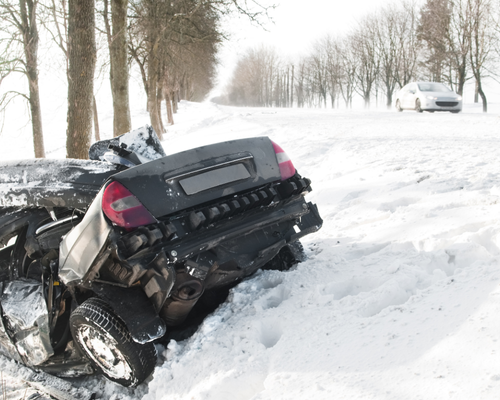Winter in Connecticut brings beautiful snowy landscapes but also dangerous conditions that can lead to personal injuries. At Vining Law, we understand how these injuries can impact your life. Our goal is to inform you about common winter-related injuries, provide prevention tips, and explain how we can help if you’re injured due to someone else’s negligence.
Slip-and-Fall Accidents
Slip-and-fall incidents are among the most common winter injury claims. Icy sidewalks, parking lots, and other public spaces can become hazardous without proper maintenance. Property owners in Connecticut have a responsibility to clear snow and ice from their premises to ensure public safety.
Common Causes of Winter Slip-and-Fall Accidents:
- Sidewalk Slips: Often caused by unshoveled or untreated pathways.
- Parking Lot Falls: Poorly maintained lots can become icy hazards.
- Stairs and Ramps: Without non-slip surfaces or handrails, these can become dangerous.
- Retail or Commercial Spaces: Melted snow near entrances can create slick conditions.
Prevention Tips:
- Wear shoes with good traction.
- Walk cautiously on icy or snowy surfaces.
- Property owners should salt walkways and clear ice promptly.
Motor Vehicle Accidents
Snow, ice, and freezing rain can make Connecticut roads treacherous in the winter. Slippery conditions and reduced visibility contribute to accidents that often result in injuries.
Winter Driving Statistics:
- According to the Federal Highway Administration, 1,300 deaths and 116,800 injuries occur annually in the U.S. due to accidents on icy or snowy pavement.
- Nearly 900 fatalities and 76,000 injuries occur during snowfall or sleet each year.
- Winter weather contributes to 22% of all weather-related crashes in the U.S.
Safety Tips for Drivers:
- Check your tires, brakes, and windshield wipers regularly.
- Drive slowly and increase your following distance on icy roads.
- Avoid unnecessary travel during snowstorms.
Hypothermia and Frostbite
Prolonged exposure to freezing temperatures can result in hypothermia or frostbite, especially for children and older adults.
How to Prevent Cold-Related Injuries:
- Dress in layers and cover exposed skin.
- Limit time spent outdoors in extreme cold.
- Watch for signs of hypothermia (e.g., shivering, confusion) and frostbite (e.g., numbness, skin discoloration).
Snow Shoveling Injuries
Clearing snow may seem routine, but it can lead to serious injuries, such as back strains, sprains, or even heart attacks.
Prevention Tips for Snow Removal:
- Use proper lifting techniques.
- Take breaks and avoid overexertion.
- Consider hiring a snow removal service if you have pre-existing health conditions.
Winter Sports Injuries
Activities like skiing, snowboarding, and ice skating are fun but come with risks. Common injuries include fractures, sprains, and concussions.
Tips to Stay Safe While Enjoying Winter Sports:
- Wear proper protective gear.
- Stay within your skill level.
- Follow all safety guidelines for the activity.
What to Do If You’re Injured in Winter
If you’re injured in a winter-related accident due to someone else’s negligence—whether it’s a slip on an icy walkway or a car accident on snowy roads—you may be entitled to compensation. Property and business owners are required to maintain safe conditions, and failure to do so can make them liable for injuries.
At Vining Law, we help Connecticut residents navigate personal injury claims with compassion and professionalism. We understand the complexities of winter-related cases and will fight to ensure you receive the compensation you deserve for medical bills, lost wages, and pain and suffering.
Why Choose Vining Law?
At Vining Law, we’re committed to serving the Connecticut community with personalized legal support. When you work with us, you can expect:
- Dedication to Your Case: We work closely with you to understand your unique situation.
- Strong Advocacy: We’ll pursue the best possible outcome for your case.
- Clear Communication: We ensure you’re informed every step of the way.
If you or a loved one has been injured this winter, don’t hesitate to reach out. Contact us at (203) 800-7380 for a free consultation. Stay safe this winter, and remember—Vining Law is here to help.
Disclaimer: This blog is for informational purposes only and should not be construed as legal advice. Consult with a qualified attorney for legal guidance specific to your situation.
